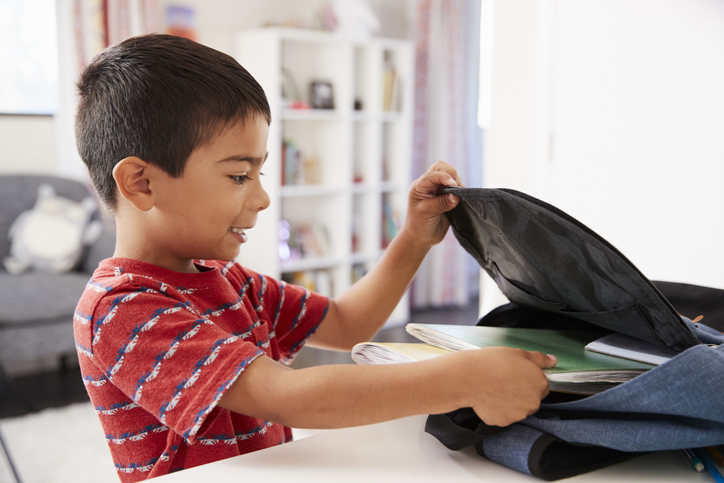Study Skills: Developing good habits that last a lifetime
/I simply cannot wait until spring to get my home and office in order; my brain won’t allow it! Both of these spaces need a major overhaul. (Trust me! With four grown-ups and a grandchild in the house, I often feel like I need professional help from someone like Marie Kondo.)
For me, the process of organization begins with sorting all the stuff that needs to be put away or filed. Since I know that I’m the one that will have to retrieve the items later, I have to do the job all by myself! Yes, I have designated storage areas for things like tax receipts, important documents, Christmas decorations, and so on and so forth. It just seems as though I delay putting this stuff away until I can’t stand to see it any longer!
Even though I dread the time it takes to get organized, for some strange reason, I wind up feeling greatly satisfied when everything is tucked away and in its place. These feelings remind me of the Shurley English Study Skills lessons centered on a character named Quigley. Quigley is a guy that seems to learn life lessons the hard way, and I can personally relate to the stories used to describe him when he is disorganized and when he’s not.
The Study Skills lessons focus on the steps Quigley must learn to get organized, listen, and use his time wisely. (There is even a Study Skills Jingle to help Quigley on his journey!) These lessons teach important life skills and are applicable to everyone, including me! Here’s a glimpse at what’s involved…
How to Get Organized:
1. Write it down! Keep an assignment notebook to record assignments, page numbers and due dates.
2. Put it away! When you put things away, always put them in the same place. If you know where something goes before you put it away, you will already know where it is when you need it again.
3. Organize your space! Each time you put something in your desk, backpack, or locker, put it exactly where it goes. Avoid “stuffing” things in at random. Start today by having a complete clean-out and fix-up.
4. Divide and conquer! Keep each subject in a separate folder so that you can find papers easily. Put all folders and notebooks on one side of your desk, and put all textbooks on the other side. Small items should be kept in the front in a zippered bag.
5. Keep it up! Staying organized is easy if you take just a few minutes every day to reorganize. If you don’t do it every day, you will get unorganized in no time.
How to Become a Better Listener:
1. Listen carefully! Look directly at the speaker. Listen to every word, and focus your mind on what the speaker is saying. Don’t fidget. Hearing happens in your ears, but listening happens in your brain.
2. Think about it! Think about what the speaker is saying. Does it make sense? Do you agree or disagree with the speaker’s opinion? Can you repeat what the speaker said, but in your own words?
3. Ask questions! Try to understand what the speaker is saying. When the speaker says something you don’t understand, raise your hand and ask the speaker to explain.
4. Write it down! Write down anything that you think you might forget. Write down important information like dates, times, addresses, and so on. Also, write down questions to ask the speaker.
How to Use Your Time Wisely:
1. Plan ahead! If you know you won’t have time to do something later, do it now! If you don’t have time now, plan to do it at a definite time, not just “later.”
2. Prioritize! “Prioritize” is just a fancy word that means “do the most important thing first.” When that is finished, do the next most important thing.
3. Make a schedule! Write down all of the things you have to do. Write down the time and the day you will do them. Check things off as you finish them.
4. Think about homework before you leave school! Check your assignment folder and decide what you need to take home. Put books and folders you will need in your book bag. At home, put your finished homework in your bag, and you will always have it ready to take to school.
5. Schedule a time and place to study! Think about your family’s routine and decide on a good study time away from distractions like TV and conversations. Have all the supplies you will need at your study area. Concentrate on what you are doing. Keep your eyes on your work and your pencil moving until you’ve finished the task at hand.
Do you need a comprehensive Study Skills lesson plan? Don't worry, Shurley English has you covered! Simply go to the Unit Studies Section in the back of your Shurley English book and check it out! Our Study Skills Unit is jammed packed with ideas to help the struggling, organizationally challenged students in your class.




































































































